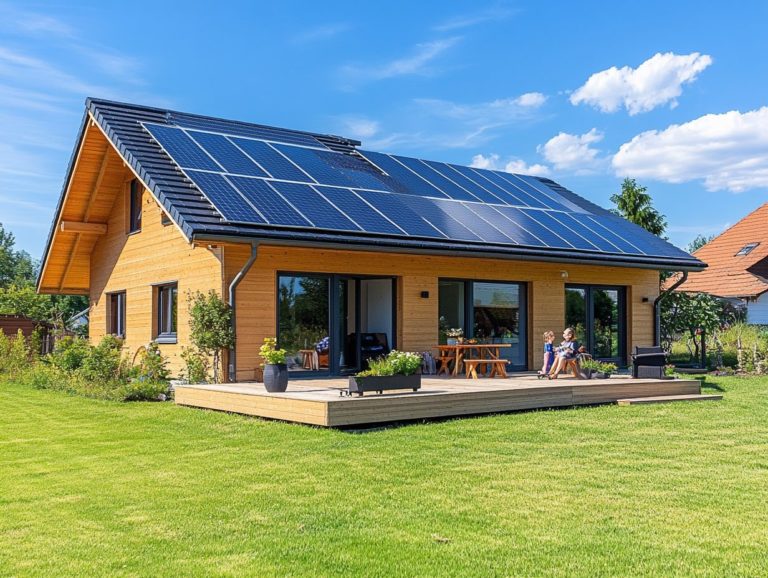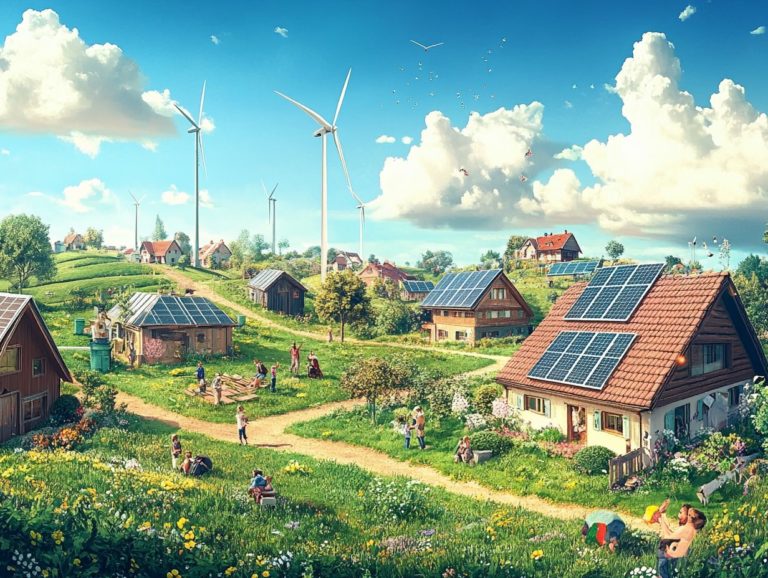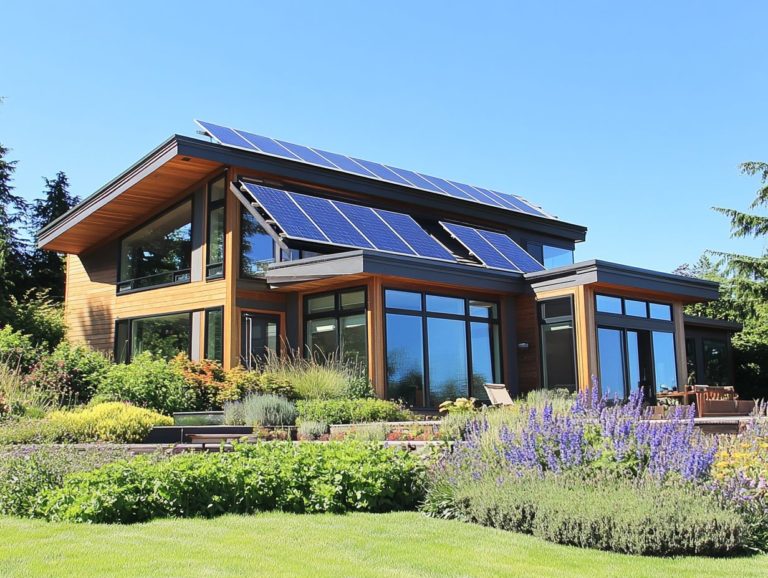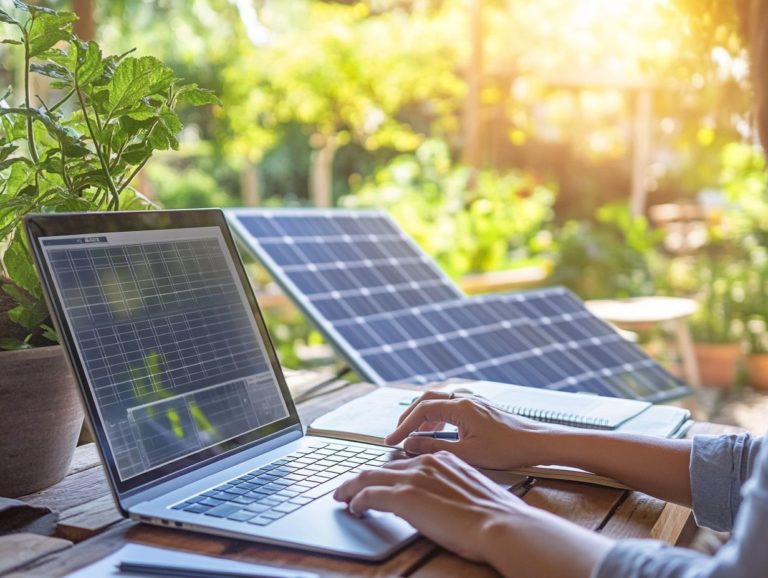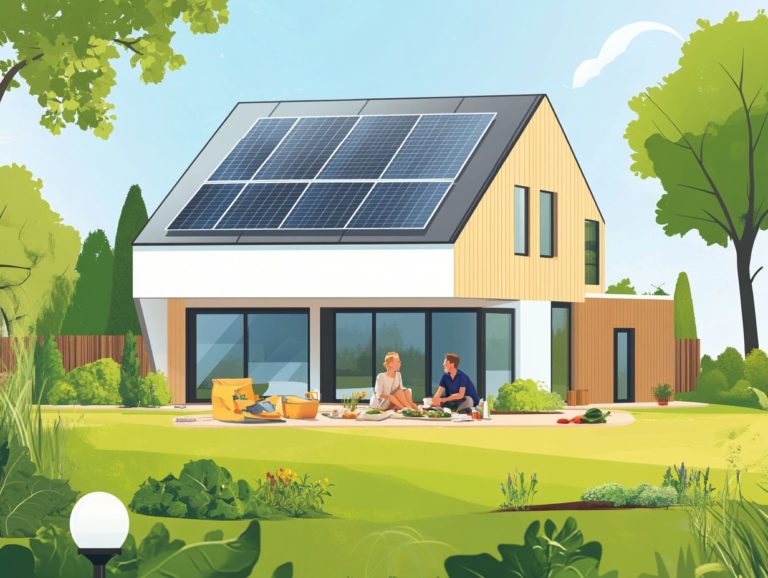“Solar Energy Myths: What Homeowners Should Know”
Imagine slashing your energy bills while helping the planet. That’s the promise of solar energy! Solar energy is swiftly becoming a favored choice for homeowners seeking a sustainable and cost-effective energy solution.
Yet, with its rising popularity, a host of misconceptions can muddle your understanding. This article seeks to illuminate the realities of solar energy, showcasing its advantages while debunking prevalent myths.
You ll explore the critical factors to consider before making an installation decision, receive guidance on selecting the perfect solar panel system, and navigate through the installation process with ease. Additionally, you’ll find valuable tips for maintaining your solar panels to ensure they remain efficient for the long haul.
Delve into this knowledge to discover how solar energy can empower your home and contribute to the well-being of our planet.
Contents
- Key Takeaways:
- Understanding Solar Energy
- Common Myths about Solar Energy
- Benefits of Solar Energy for Homeowners
- Factors to Consider Before Installing Solar Panels
- How to Choose the Right Solar Panel System for Your Home
- The Installation Process
- Unlock the Full Potential of Your Solar Panels!
- Preguntas Frecuentes
- Cu les son algunos mitos comunes sobre la energ a solar?
- Son realmente caros los paneles solares?
- Los paneles solares requieren mucho mantenimiento?
- Puede la energ a solar alimentar toda mi casa?
- Funcionar n los paneles solares en climas fr os o nublados?
- Tengo que vivir en un estado soleado para beneficiarme de la energ a solar?
Key Takeaways:
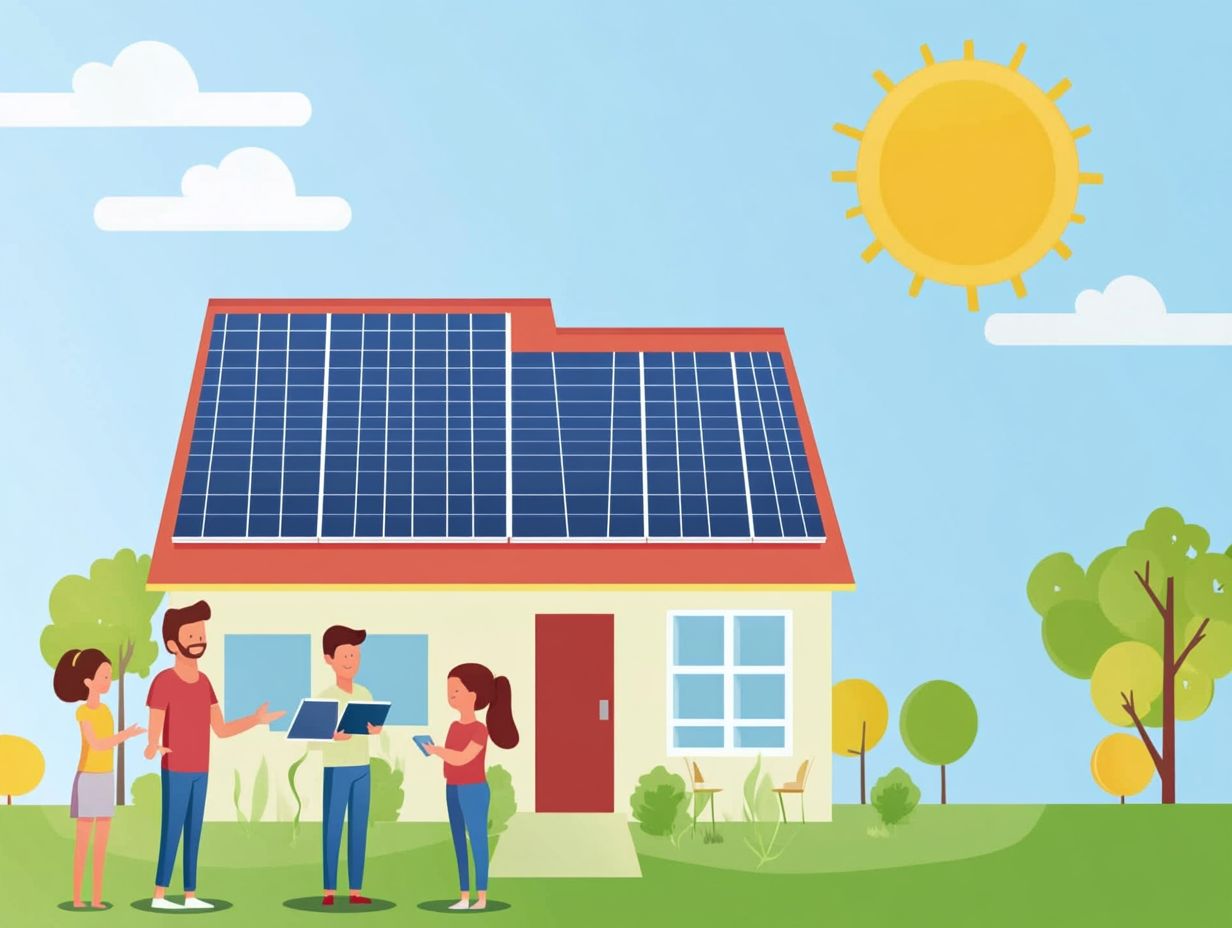
- Solar energy is a renewable and sustainable source of energy.
- It can help homeowners save money while reducing their carbon footprint.
- Debunking common myths about solar energy helps homeowners make informed decisions.
- Before installing solar panels, consider your home’s suitability and the available options.
Understanding Solar Energy
Understanding solar energy involves grasping its key ideas, including how solar panels transform sunlight into electricity, the technologies that support solar energy systems, and the federal government’s role in advancing clean energy initiatives.
As a homeowner in California, especially in Fresno, you stand to gain from a range of solar financing options and tax incentives designed to make your transition to solar energy not just feasible, but advantageous.
The growing awareness of energy efficiency is driving more people to adopt solar technology, enabling you to harness renewable energy with remarkable effectiveness.
What is Solar Energy?
Solar energy presents an exceptional opportunity for you to embrace renewable energy by utilizing the strength of the sun to generate electricity or heat. This is mainly done using solar panel systems.
These systems work by capturing sunlight with solar cells made from silicon. When photons from the sun strike the material, they knock electrons loose, generating direct current (DC) electricity. An inverter, a device that changes DC electricity into alternating current (AC) electricity for home use, makes it suitable for your household needs. As a result, you can power your appliances and lighting seamlessly.
Solar energy also offers benefits beyond electricity generation. You can also take advantage of solar water heaters and solar thermal systems, further enhancing efficiency in your home.
By adopting solar energy, you not only decrease your reliance on fossil fuels but also enjoy reduced energy bills and contribute to a more sustainable future.
Common Myths about Solar Energy
Despite the increasing allure of solar energy, a number of persistent myths continue to circulate, fostering misconceptions about solar panels and their reliability as a clean energy source.
These myths may dissuade you from considering the myriad benefits of solar energy systems, even though their efficiency and potential for substantial energy savings are well-documented.
Debunking Misconceptions
Many misconceptions about solar energy, such as the notion that solar panels are ineffective in cloudy areas or that they come with a prohibitive price tag, can hold you back from investing in solar installations. This prevents you from reaping the rewards of available tax credits and financial incentives.
In truth, solar panels are engineered to efficiently capture sunlight, even on those dreary overcast days. This means they can still generate a substantial amount of energy, regardless of less-than-ideal weather conditions.
While the upfront investment might appear daunting, the long-term savings on your electricity bills can quickly balance out that initial cost, often resulting in a positive return on your investment.
You can further amplify your savings by taking advantage of various tax credits and incentives offered by the government. These can significantly reduce installation costs and make solar energy a financially savvy decision for your home.
Ready to explore solar for your home? Get a quote today and start your journey towards a greener future!
Benefits of Solar Energy for Homeowners
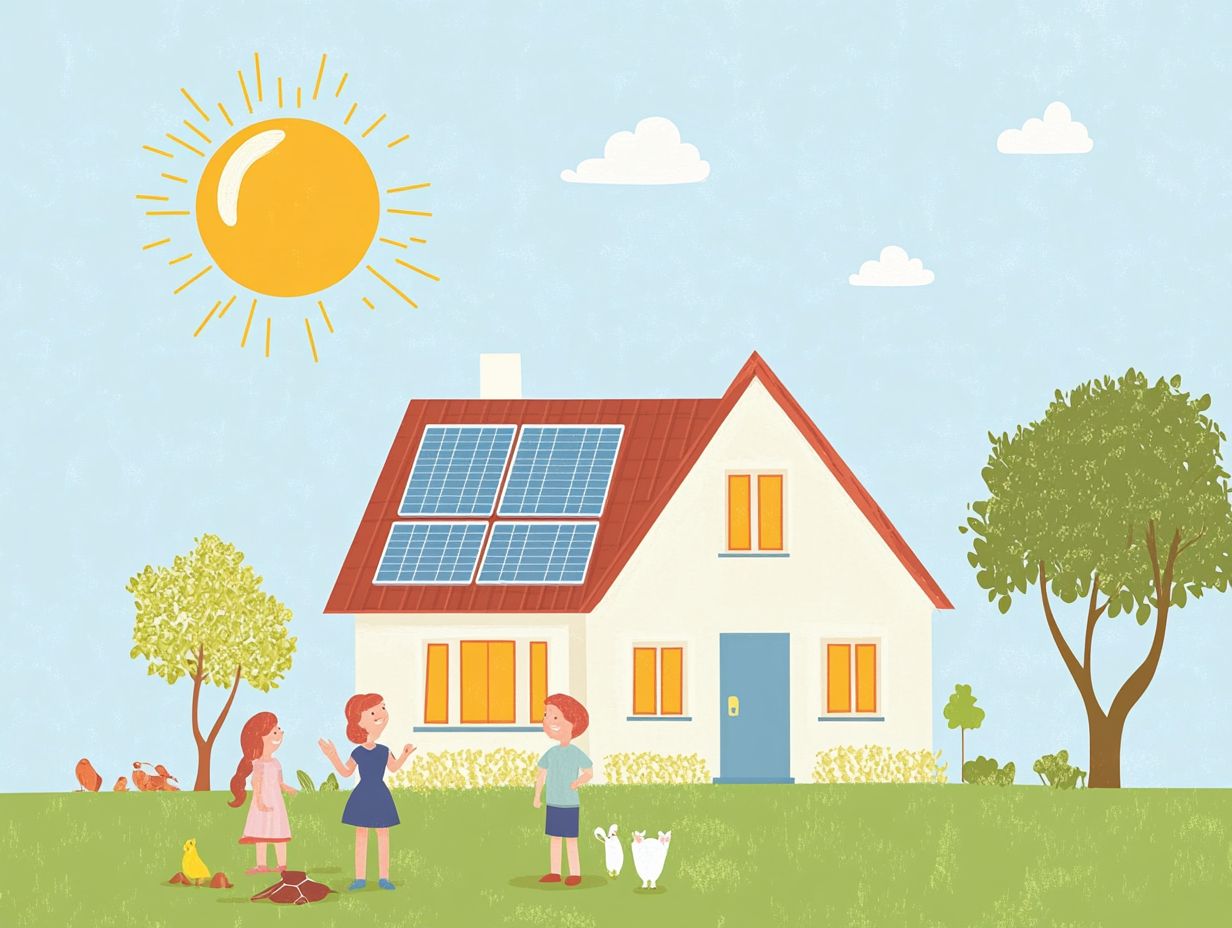
The advantages of solar energy for homeowners go well beyond simple energy savings. They include substantial federal investments in clean energy, enticing property tax incentives, and the potential for significant reductions in electricity costs.
These benefits can positively influence not just your home s value but also your overall financial well-being.
Financial Savings and Environmental Impact
One of the most remarkable advantages of solar energy lies in its potential for substantial financial savings. By harnessing this renewable resource, you can lower your electricity rates while also contributing to a more sustainable and clean power infrastructure.
As you tap into the sun’s energy, you may witness a significant reduction in your monthly energy bills. In fact, studies suggest that homeowners like you could save anywhere from $10,000 to $30,000 over the lifespan of a typical solar system, depending on local energy rates and available incentives.
This financial relief not only alleviates pressure on your household budget. It also paves the way for smarter financial planning and investing in other important areas.
Transitioning to solar energy significantly diminishes reliance on fossil fuels, resulting in lower greenhouse gas emissions. This leads to a healthier planet for future generations.
Adopting solar solutions means you re joining an exciting movement toward a sustainable future! Saving money and protecting the environment can indeed go hand in hand.
Factors to Consider Before Installing Solar Panels
Before installing solar panels, you should thoughtfully evaluate several key factors.
Consider installation costs and your specific energy needs. This careful assessment will help you choose the right solar energy system that aligns with your household requirements.
Assessing Your Home’s Suitability
Assessing your home’s suitability for solar panels involves evaluating the condition of your roof and understanding your energy needs. Consulting with qualified solar installers can help you find the best solar system for your property.
Start with a careful examination of your roof’s orientation to ensure it captures maximum sunlight throughout the day. Check for shading from nearby trees or buildings that might hinder solar efficiency.
Structural integrity is also paramount; confirm that your roof can support the weight of the solar panels and any necessary mounting equipment.
By tracking your energy consumption patterns and considering local climate conditions, you can develop a solid plan that aligns with both your budget and environmental goals.
How to Choose the Right Solar Panel System for Your Home
Selecting the ideal solar panel system for your home is an important step that requires careful consideration of various solar technologies.
You ll want to understand your financing options and choose a reputable installation company to ensure optimal energy production and efficiency.
Key Considerations and Options
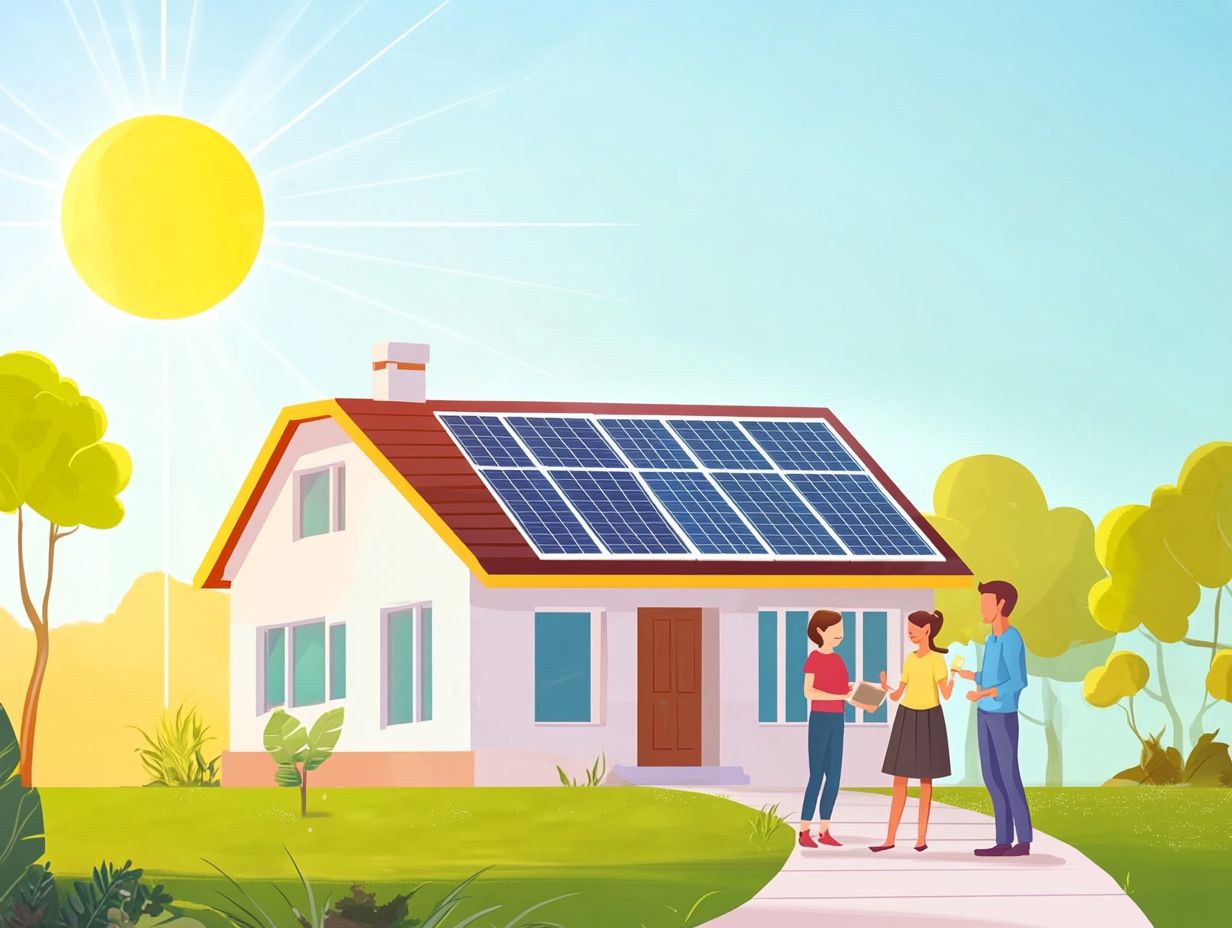
When exploring options for solar panels, keep a few key considerations in mind.
First, think about the two common types of solar panels: monocrystalline and polycrystalline. These technologies vary in efficiency, aesthetic appeal, and cost, so it s worth your time to do some research.
Additionally, consider the reputation of the installation company and the financing options that can help you manage those upfront costs more easily.
Verify the certifications of installers to ensure they possess the necessary qualifications and experience for a seamless installation process.
Assess different financing strategies to lessen your initial expenses. Options like solar loans, leases, and enticing incentives such as tax credits can make solar energy more affordable.
This comprehensive approach will enable you to make informed decisions that align perfectly with your energy needs and budget.
The Installation Process
Grasping the installation process for solar panels is crucial for you as a homeowner. This journey encompasses several key steps:
- Checking your roof and yard
- Acquiring the necessary permits
- Selecting the right installation company
- Familiarizing yourself with post-installation maintenance requirements
Each of these elements plays a vital role in ensuring optimal energy production and maximizing the benefits of your investment.
What to Expect and How to Prepare
Homeowners can expect several key stages during the installation of solar panels. These include preparing for the installation day, coordinating with the installation company, and understanding the importance of ongoing maintenance to maximize energy production.
To begin the journey, evaluate your roof for any obstructions or damage to ensure the surface is ready for securely mounting the panels. Clear the area around your home of debris and make any necessary adjustments to your property to pave the way for a smoother installation.
When installation day arrives, anticipate a team of skilled technicians working diligently to position and connect the panels. They will keep you informed about each step of the process.
Take note of any adjustments that may be needed to your current electrical system. This will help you be fully aware of the comprehensive nature of this eco-friendly upgrade.
Unlock the Full Potential of Your Solar Panels!
Maintaining and maximizing the efficiency of your solar panels is crucial for securing long-term energy savings and ensuring optimal performance of your solar energy systems.
This entails a thorough understanding of the maintenance requirements and adopting best practices tailored to enhance your solar panels’ longevity and effectiveness.
Tips for Long-Term Efficiency and Savings
To ensure you enjoy long-term efficiency and savings from your solar panels, adopt best practices such as regular cleaning and timely inspections. Stay informed about advancements in solar technology and energy-saving strategies.
Establish a consistent cleaning schedule ideally twice a year to significantly boost performance by eliminating dirt, dust, and debris that block sunlight. Schedule professional inspections every year to catch potential issues early and ensure that your system remains in optimal working condition.
Stay abreast of technological advancements, such as smart inverters and battery storage options, to further enhance your efficiency and savings.
By integrating these actionable tips into your routine maintenance, you can extend the lifespan of your solar panels and maximize your return on investment in renewable energy.
Preguntas Frecuentes
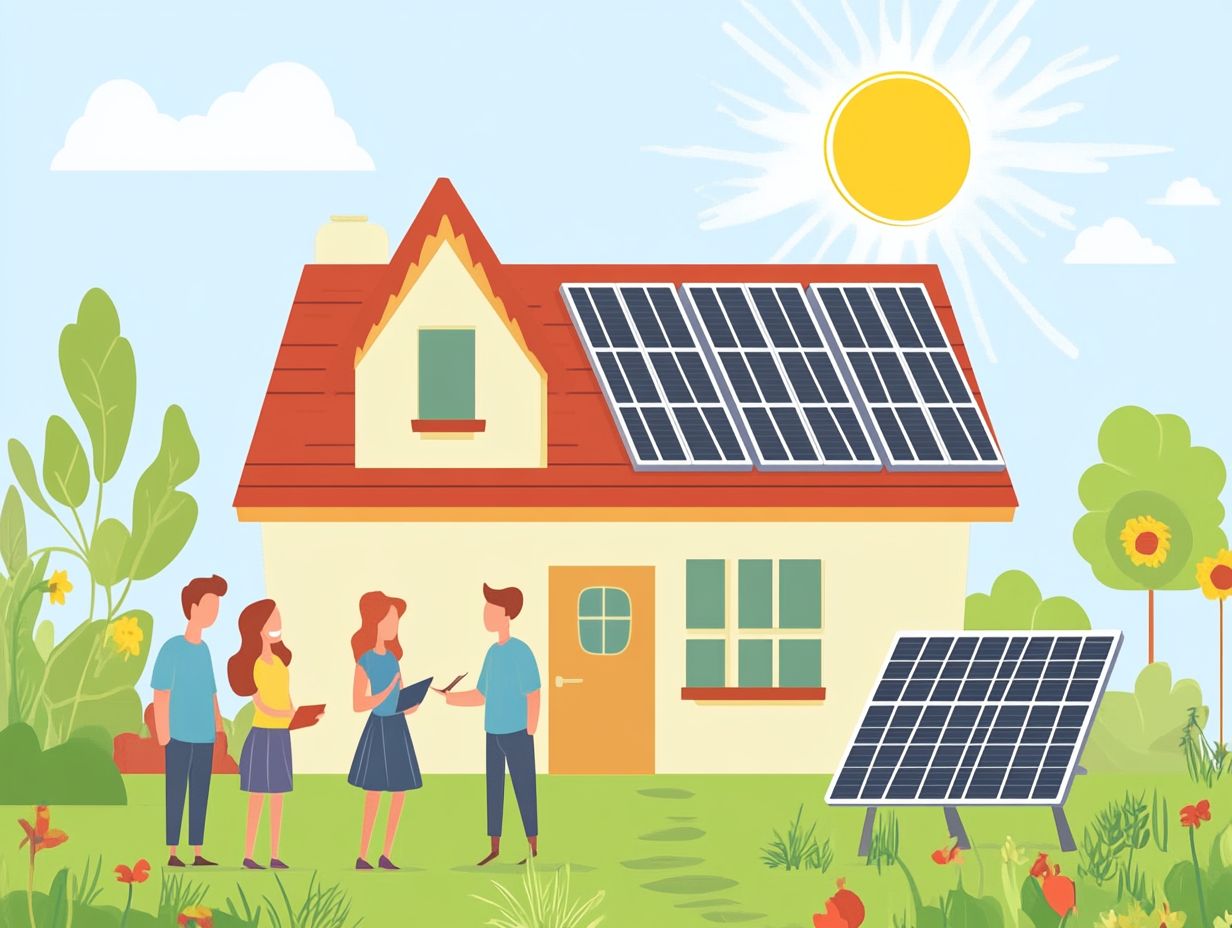
Cu les son algunos mitos comunes sobre la energ a solar?
Algunos mitos comunes sobre la energ a solar incluyen:
- Los paneles solares no funcionan en climas fr os o nublados.
- Los paneles solares son demasiado caros para el propietario medio.
- Los paneles solares requieren un mantenimiento constante.
- Los paneles solares no son duraderos y pueden romperse f cilmente.
- La energ a solar no puede alimentar una casa entera.
- Solo los estados soleados pueden beneficiarse de la energ a solar.
Son realmente caros los paneles solares?
No, los paneles solares se han vuelto mucho m s asequibles en los ltimos a os. De hecho, el costo de las instalaciones solares ha disminuido en m s del 70% desde 2010. Adem s, hay varias opciones de financiamiento e incentivos disponibles para hacer que la energ a solar sea m s accesible para los propietarios de viviendas.
Los paneles solares requieren mucho mantenimiento?
No, los paneles solares requieren muy poco mantenimiento. No tienen partes m viles, por lo que no es necesario un mantenimiento regular. Se recomienda una limpieza ocasional y revisiones por da os o escombros, pero en general, los paneles solares son muy duraderos y requieren un mantenimiento m nimo.
Puede la energ a solar alimentar toda mi casa?
S , la energ a solar puede alimentar la mayor a, si no todas, las necesidades energ ticas de su hogar. Con un sistema solar adecuadamente dimensionado e instalado, puede confiar en la energ a solar para alimentar la electricidad, la calefacci n e incluso el agua caliente de su hogar.
Take the Next Step: Contact a local solar provider or visit our website for more information!
Funcionar n los paneles solares en climas fr os o nublados?
S , los paneles solares pueden generar electricidad en climas fr os o nublados.
Aunque no producen tanta energ a como en d as soleados, siguen siendo una excelente fuente de energ a renovable.
Tengo que vivir en un estado soleado para beneficiarme de la energ a solar?
No es necesario.
Puedes usar energ a solar en todos los estados. Aunque las reas soleadas generan m s energ a, los paneles solares son una opci n rentable y sostenible en cualquier lugar.

